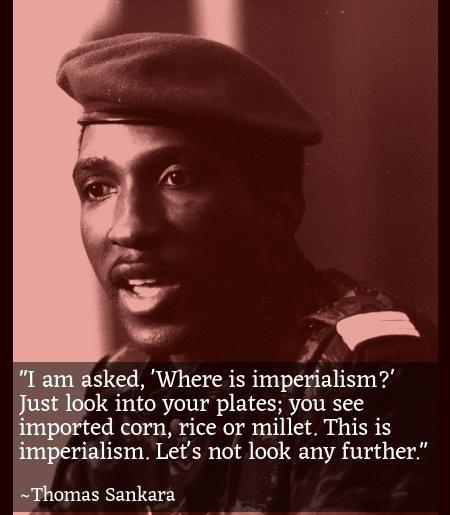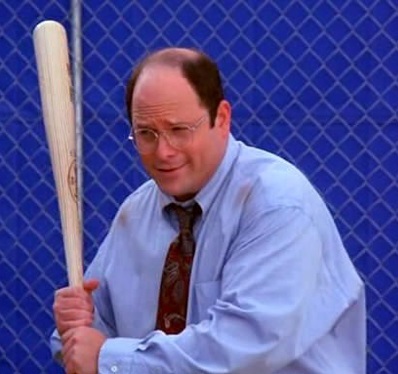reformulated: “do not give us food, give us the means of production”

Bro fucking hates millet
It’s interesting to see the two interpretations of the “teach a man to fish” line.
The capitalist sees it as pulling oneself by the bootstraps and individualized. The ability to fish is naturally available and there are no external influences to that ability. If you can’t do it, too bad!
The communist wants to fish, but because he emerges from the corpses of capitalism, he has to navigate around sabotage against the ocean, lack of fishing equipment, and the theft of the fish he caught by the capitalists.
Give a man a fish and he’ll eat for a day. Give a man aid in building a sustainable fishery infrastructure and on the day you need a fish he’ll be ready to help you.
100%. The US uses it’s massive maize surplus as a strategic weapon.
any good reading you can point to about this?
The IMF is an arm of food insecurity imperialism. When countries are forced to take loans, they often have to agree to not suvsidize their own agricultural industries even while the US, already possessing massive industrialized farming capacity, continues to subsidize their own. The effect is that they must now import food or pay substantially more for local food. Due to the rest of the IMF loan terms’ impact on their economies (usually forcing a specific kind of currency devaluation and export economy), theu will have to import food and give up food sovereignty.
This is very common in African countries, which make up a disproportionate number of those forced to take IMF loans. But it also applies to, for example, Venezuela, and is what Chavez rose to power opposing. Chavez et al tried to build a real economy and food sovereignty off of its inherited oil export economy. The US response was massive sanctions and tons of coups attempts.
Edit: for reading recs Fanon and Nkrumah are good as a prelude and then something more modern describing neocolonialism for the “main piece”. Maybe “How Europe Underdeveloped Africa” for an early analysis and various specific readings for modern situations. Here’s a MR take on Venezuela: https://monthlyreview.org/2009/07/01/the-venezuelan-effort-to-build-a-new-food-and-agriculture-system/
Thanks

That man could really wear a hat

The funny part is that they’re sending agricultural tools and inputs now, too, but it’s in service of a postcolonial export-oriented economy rather than building resilient local food systems, so people are still going hungry.
“here’s some ag tools. now only grow this one monocrop to sell to us. in exchange you can have access to our ag market for foodstuffs. oh and get uppity and we will starve you to death. good luck transitioning from your monocrop to food production before your whole country starves.” - the U.S.
Removed by mod






